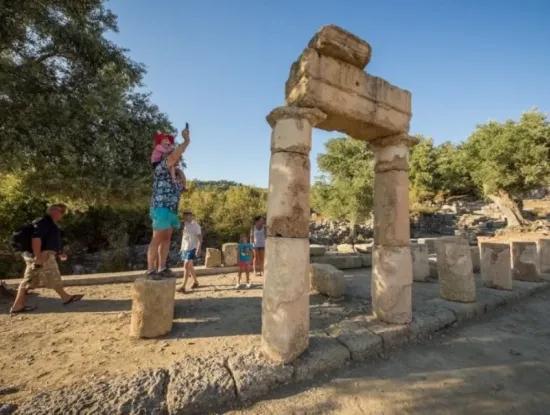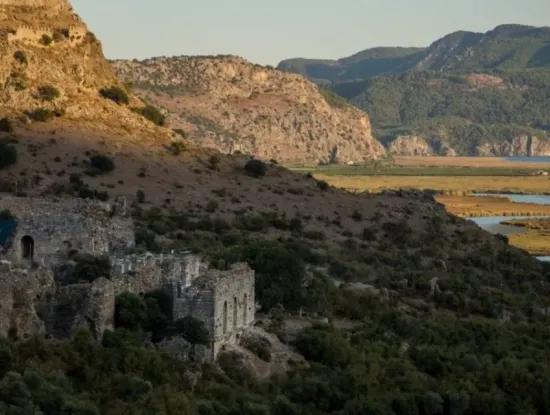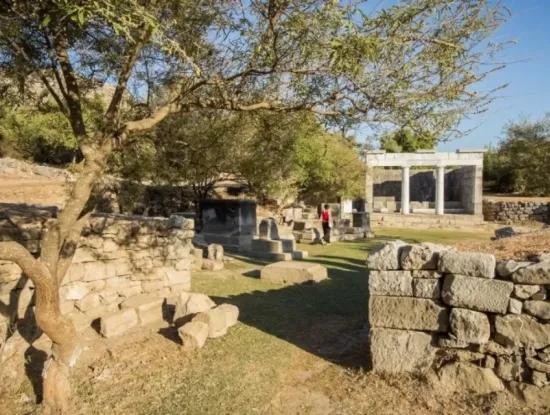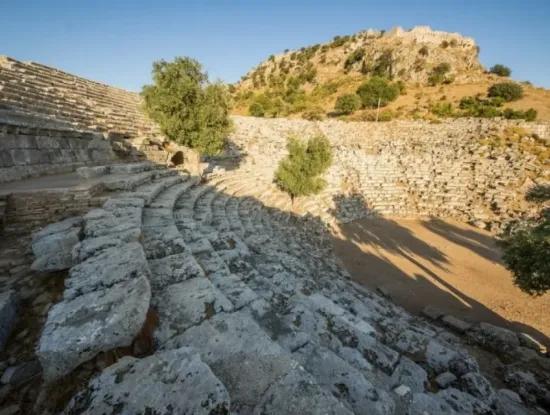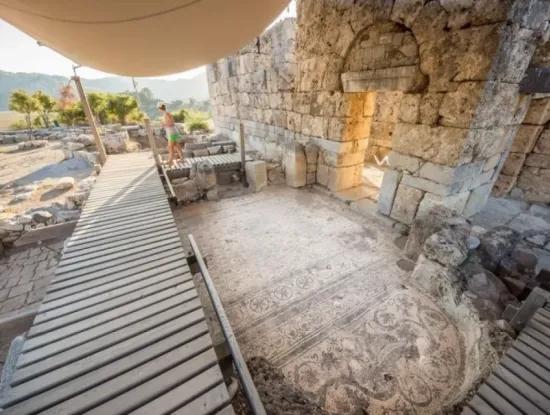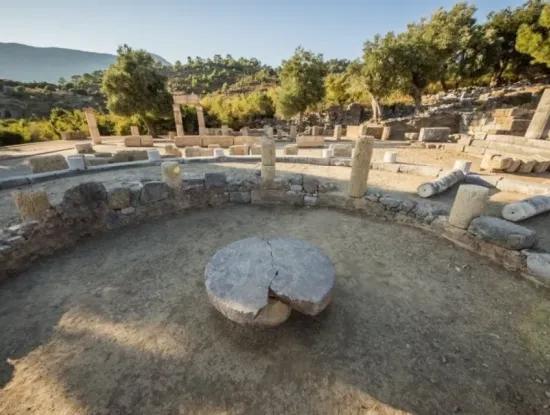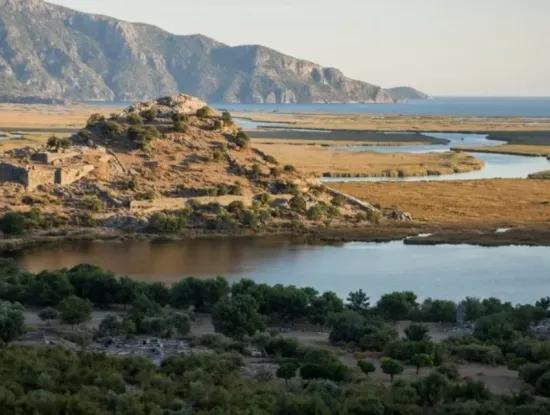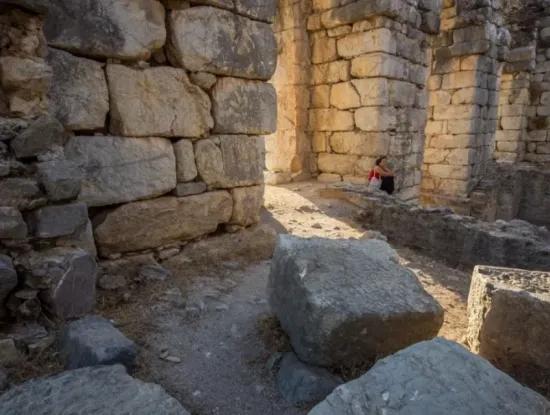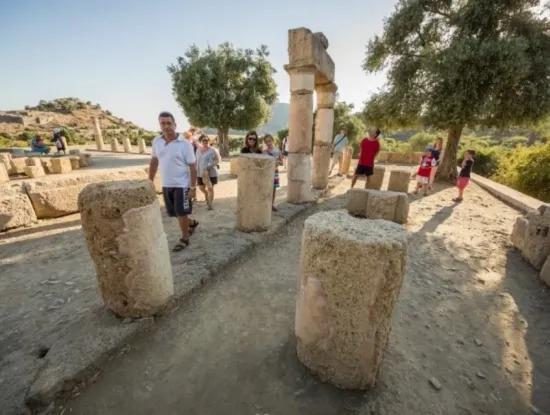Legend has it that King Miletos' twin children Kaunos and Byblis fall in love. Hearing about this forbidden love among his children, Miletos bans his son Kaunos from his country. Kaunos comes to the Dalyan region to settle and builds a city he named after him. Over time, the city became one of the most important ports of antiquiths.
As a result of archaeological excavations carried out since 1966, the city was unearthed with theaters, baths, agoras, ports, shops, fountains and streets. The surrounding area of the city is surrounded by walls built on separate dates. Rock tombs, which have maintained their majesty for thousands of years, are located on the rocky slopes west of Dalyan. As a result of archaeological excavations carried out since 1966, the city was unearthed with theaters, baths, agoras, ports, shops, fountains and streets. The area around the city is surrounded by walls built on separate dates.
Rock tombs, which have been in their majesty for thousands of years, are located on rocky slopes west of Dalyan. The word Kaunos has no meaning in Helen. In Lymya inscriptions, Kaunos is called Ksibde. In other cities around Kaunos, Kaunos' name is kbid.
As a result of archaeological excavations carried out since 1966, the city was unearthed with theaters, baths, agoras, ports, shops, fountains and streets. The surrounding area of the city is surrounded by walls built on separate dates. Rock tombs, which have maintained their majesty for thousands of years, are located on the rocky slopes west of Dalyan. As a result of archaeological excavations carried out since 1966, the city was unearthed with theaters, baths, agoras, ports, shops, fountains and streets. The area around the city is surrounded by walls built on separate dates.
Rock tombs, which have been in their majesty for thousands of years, are located on rocky slopes west of Dalyan. The word Kaunos has no meaning in Helen. In Lymya inscriptions, Kaunos is called Ksibde. In other cities around Kaunos, Kaunos' name is kbid.


